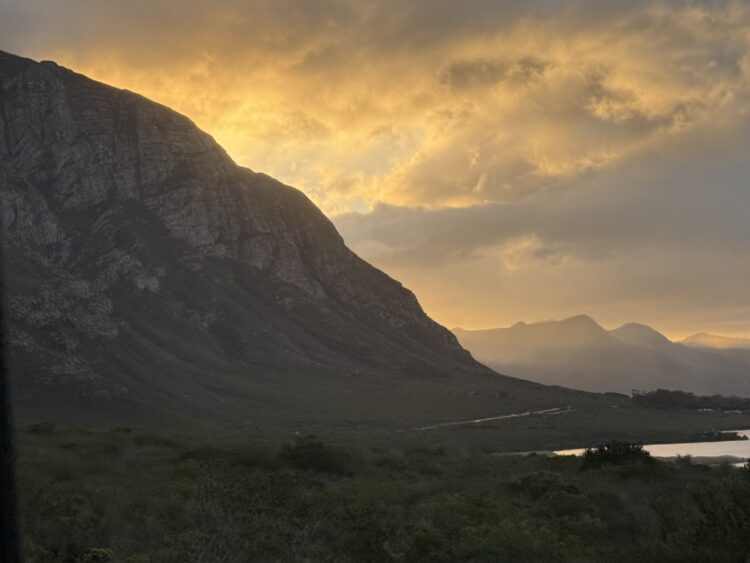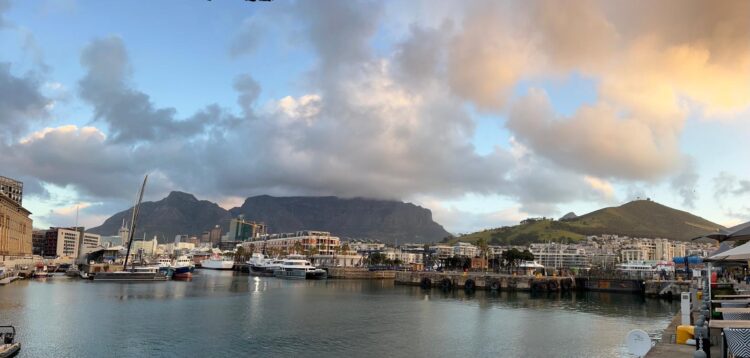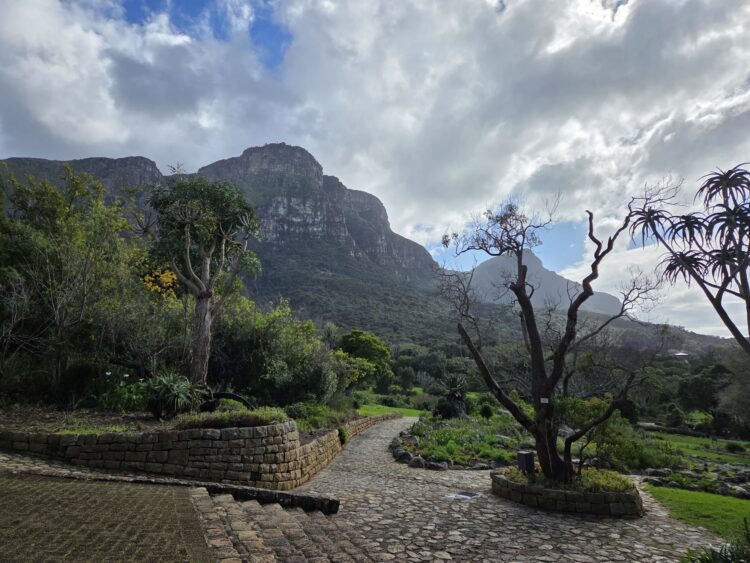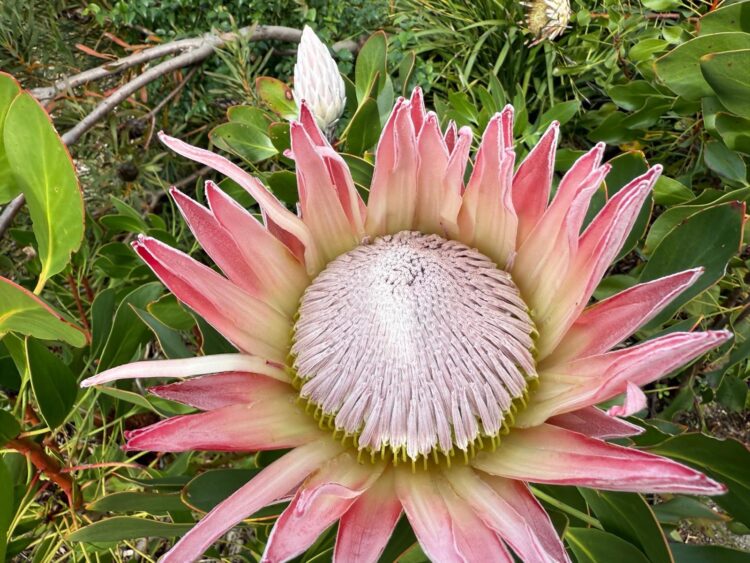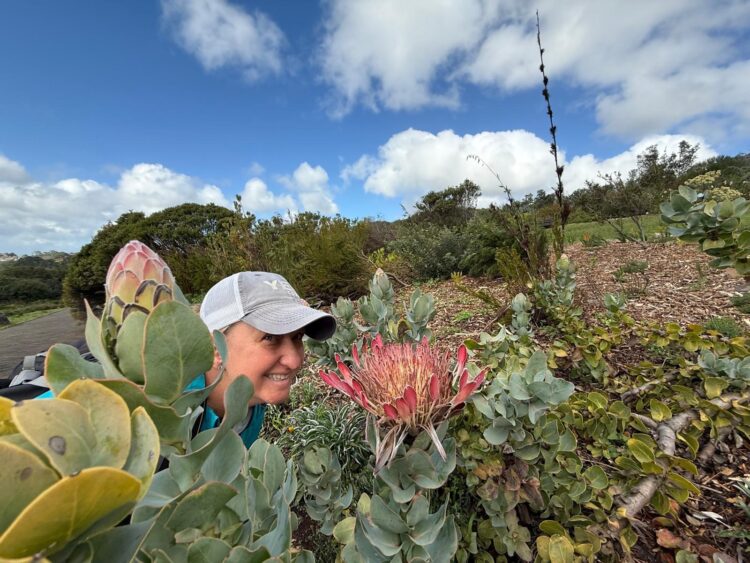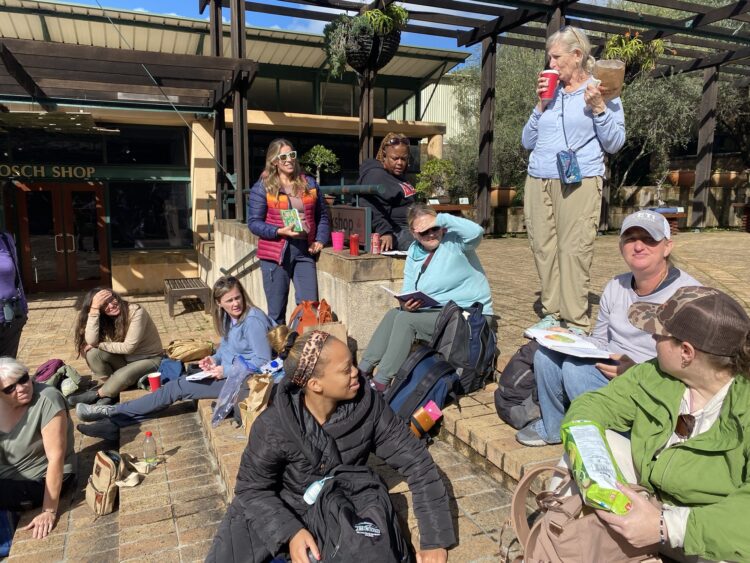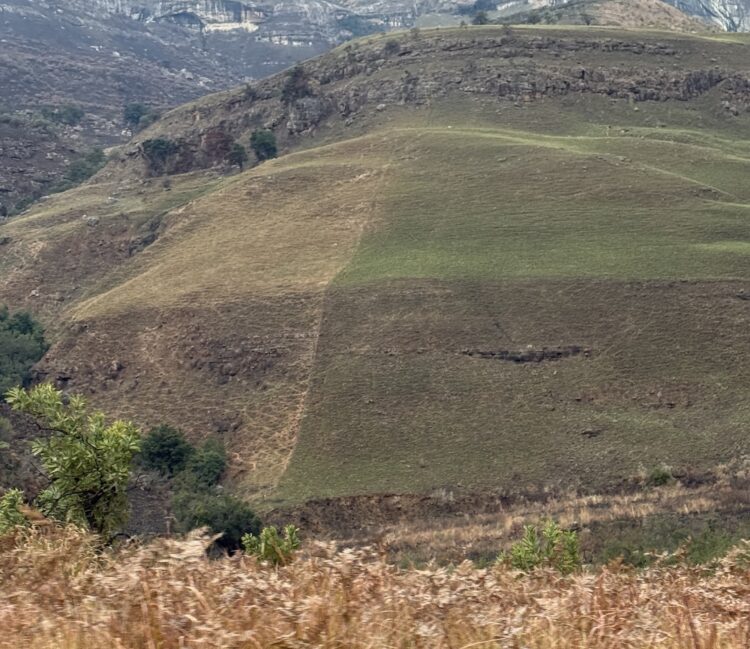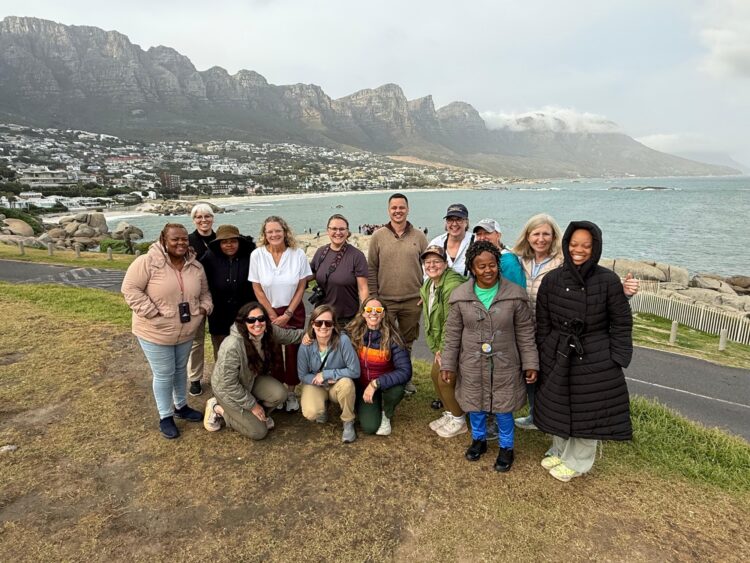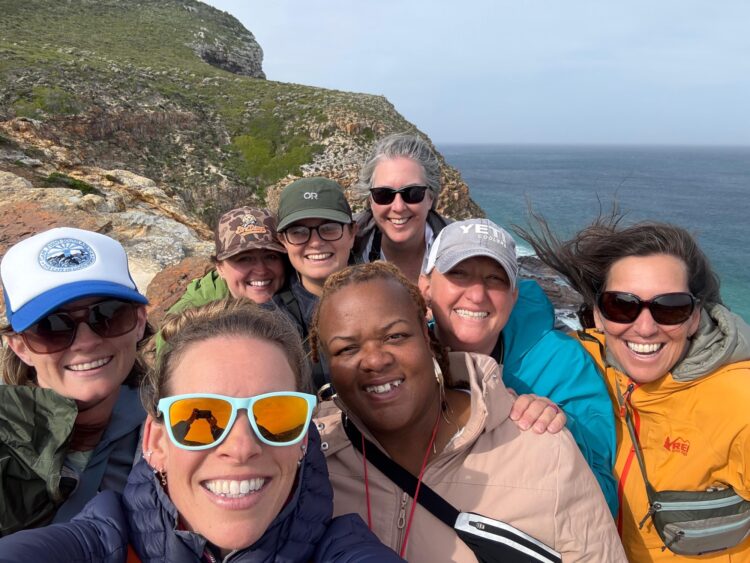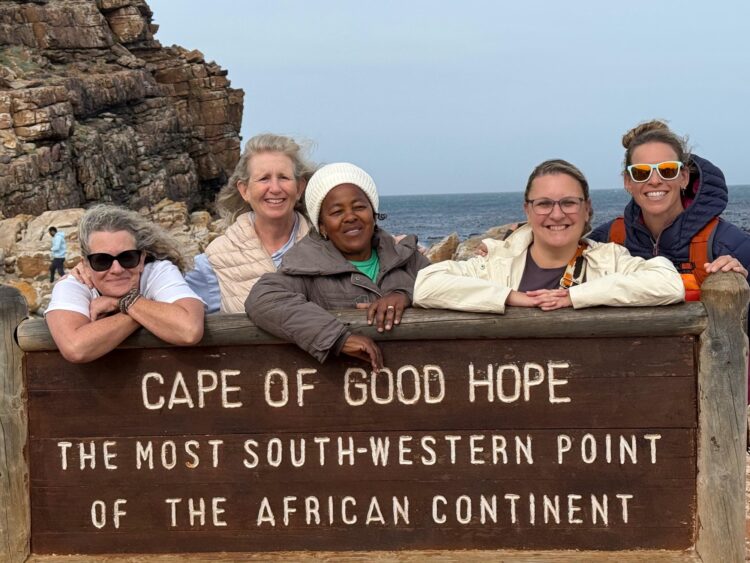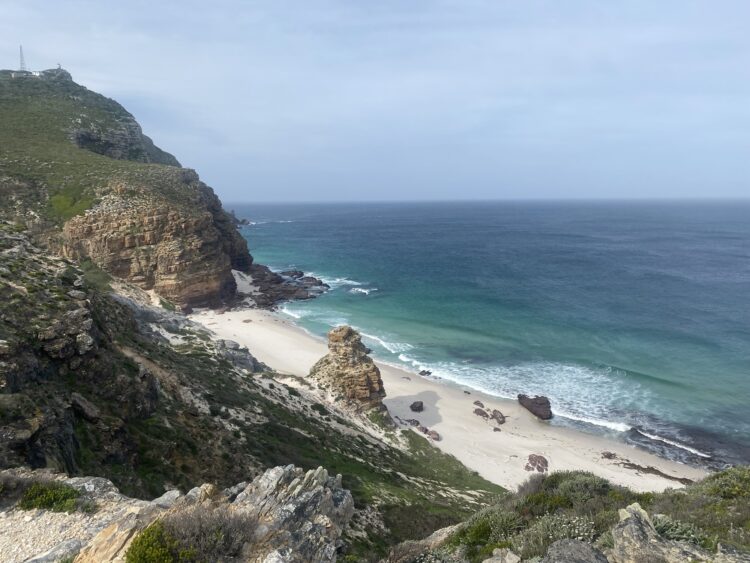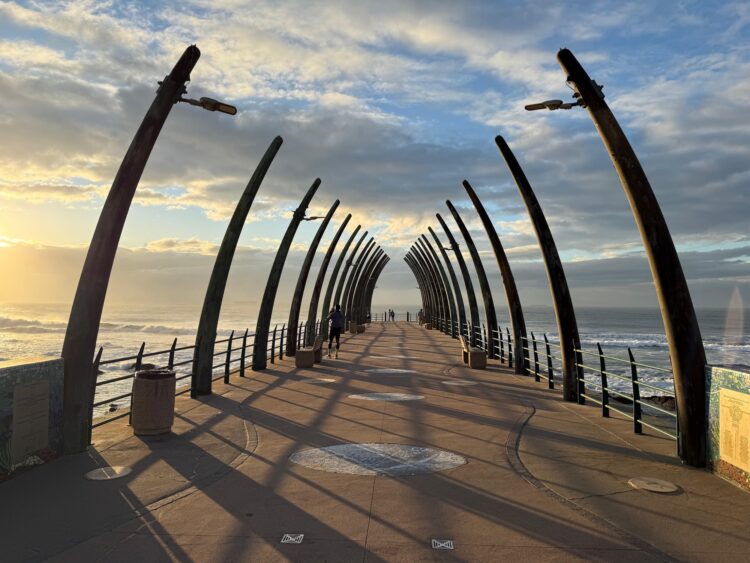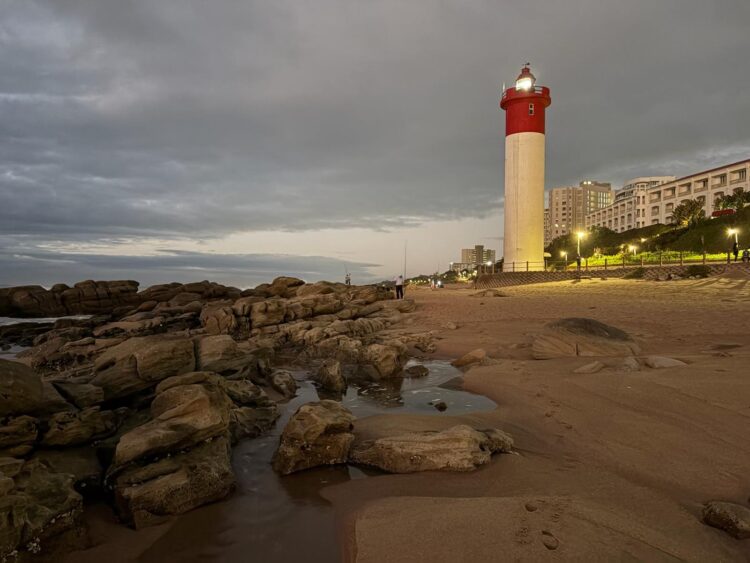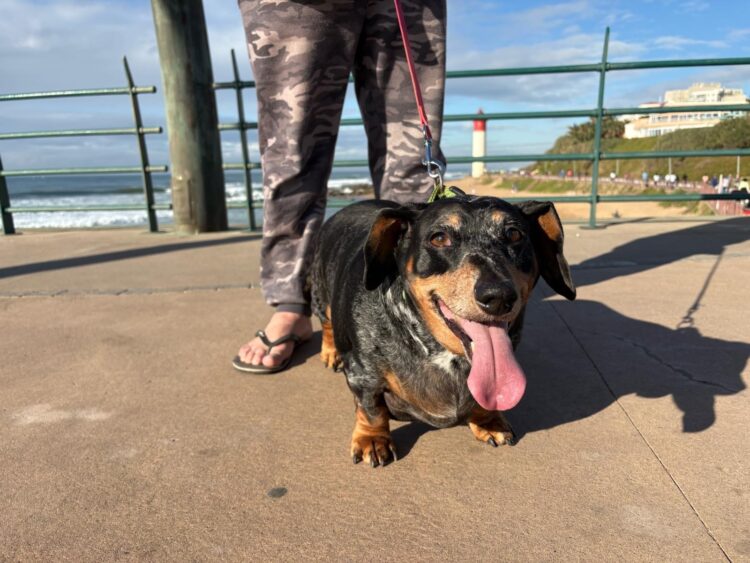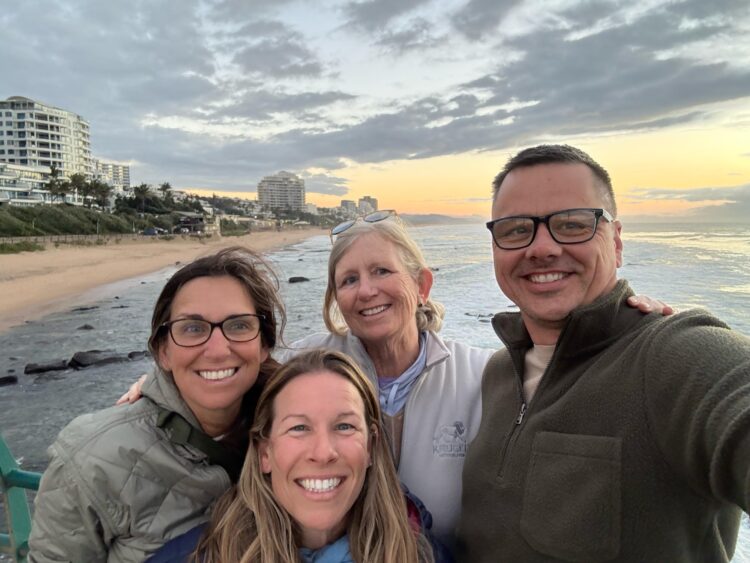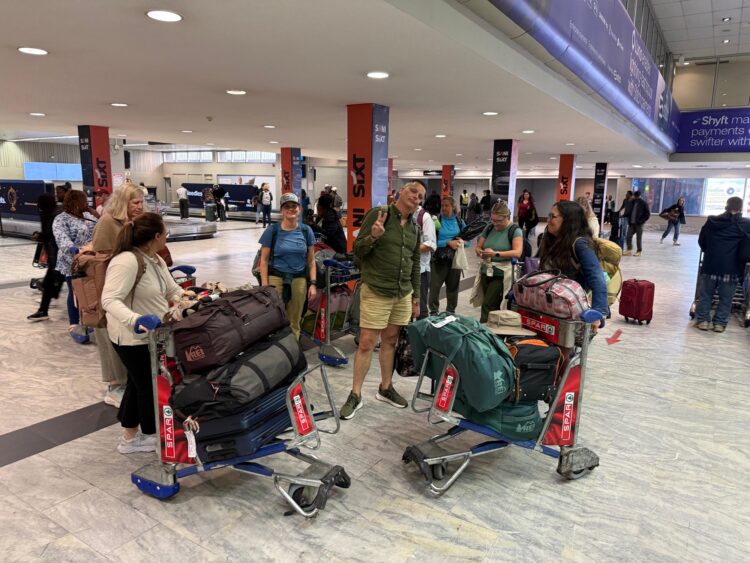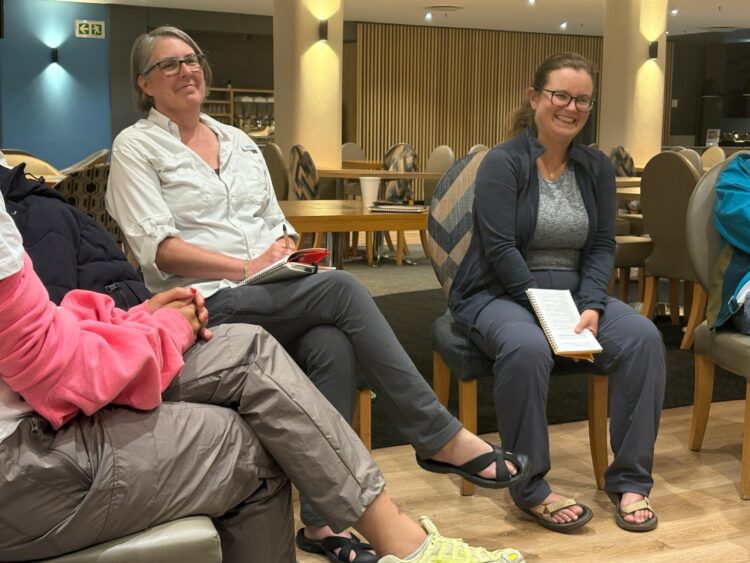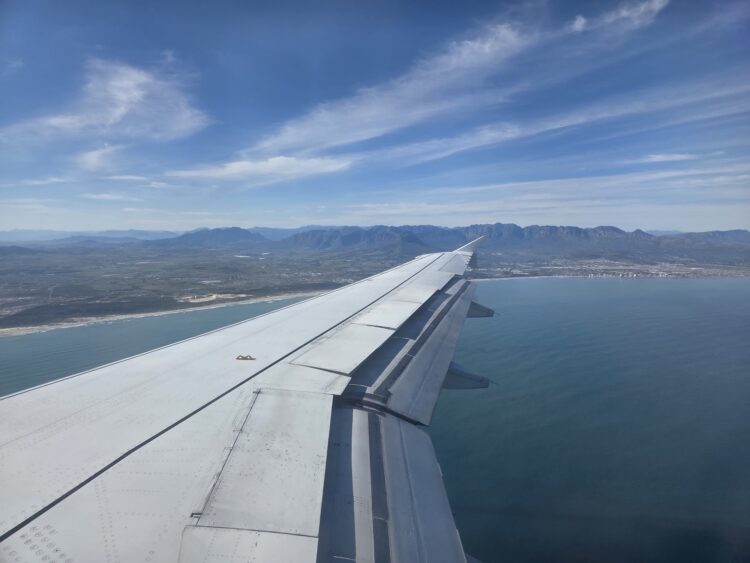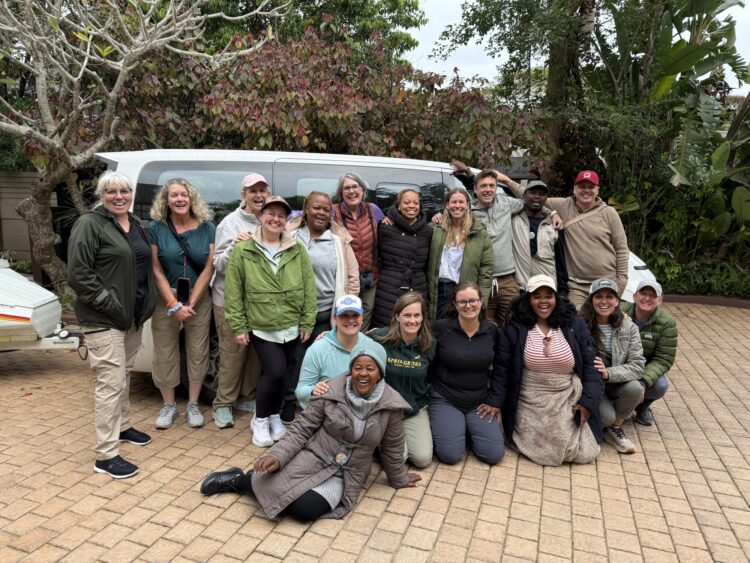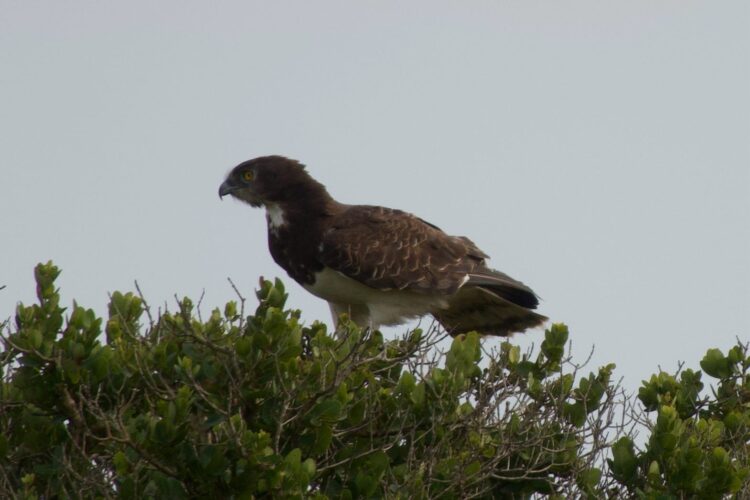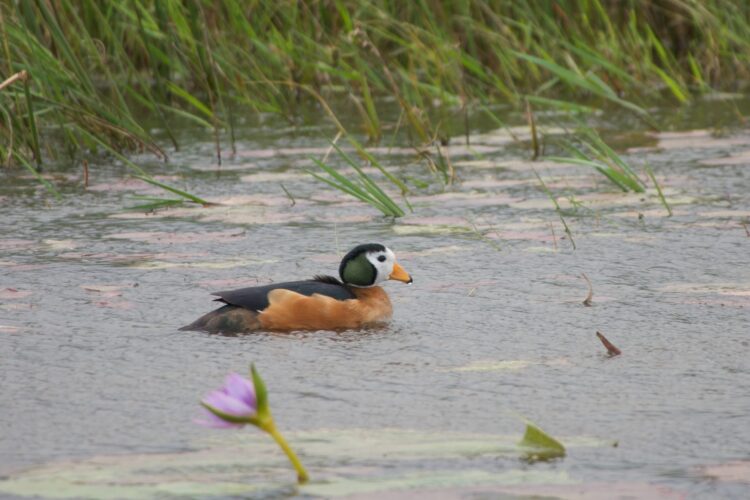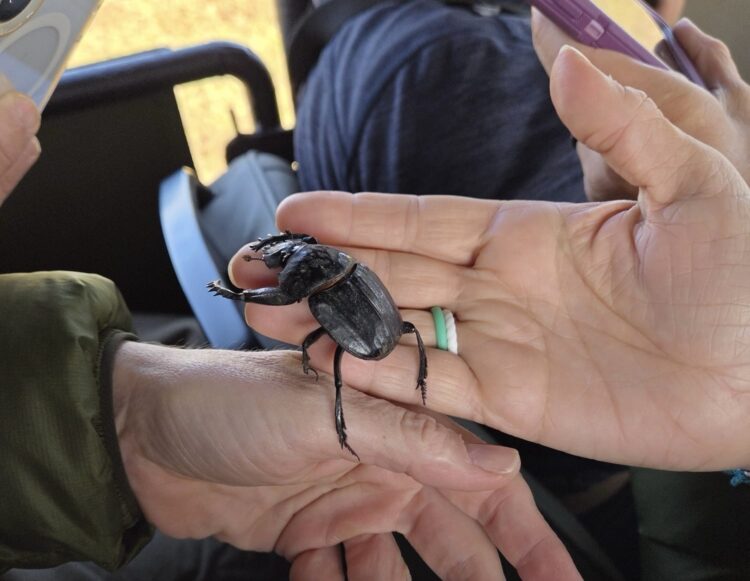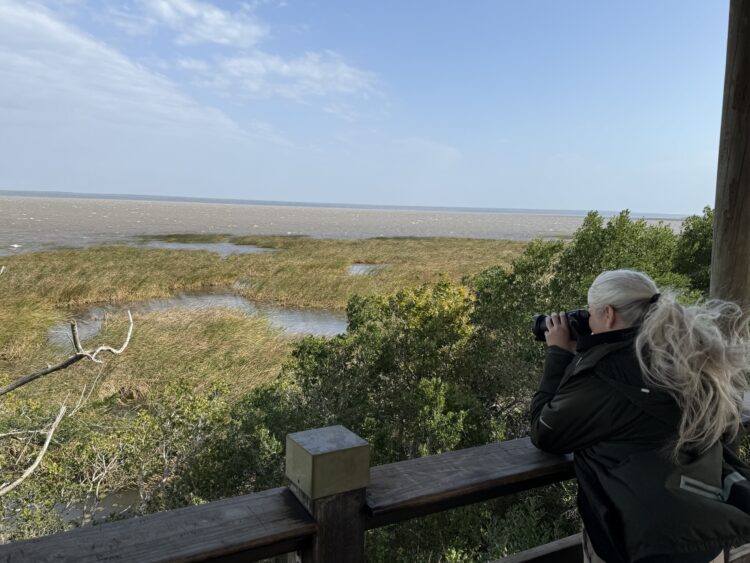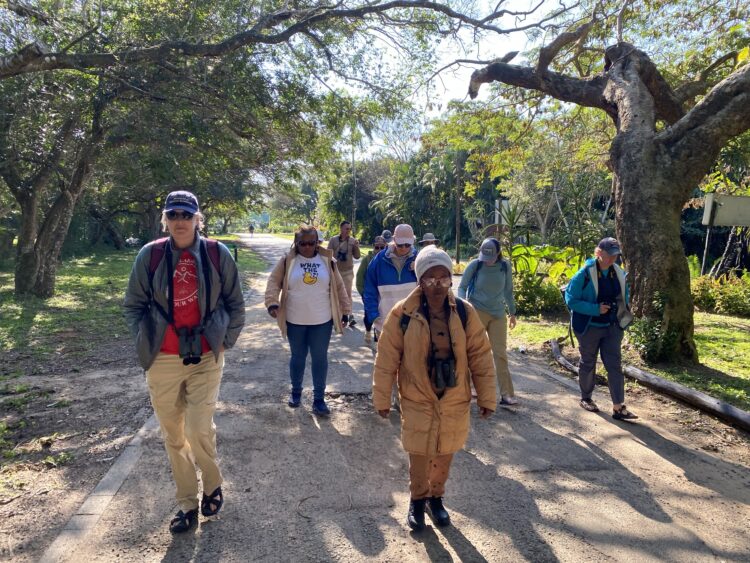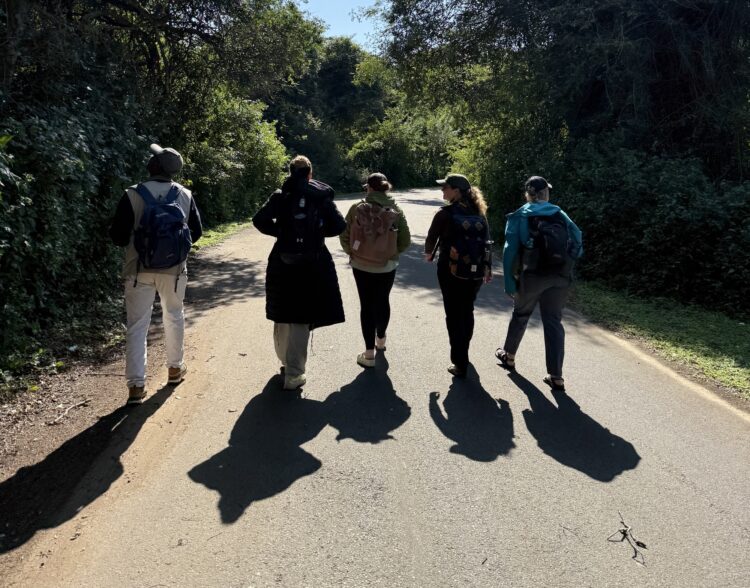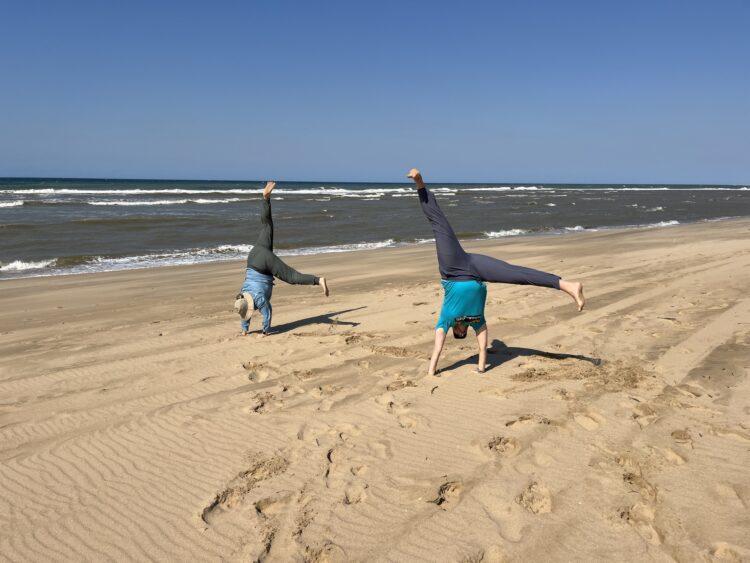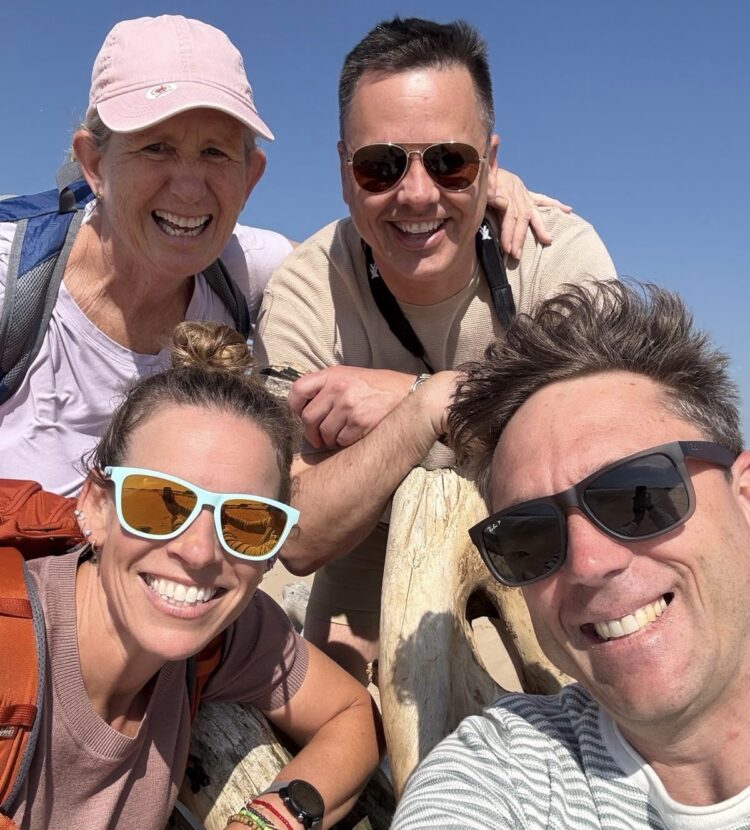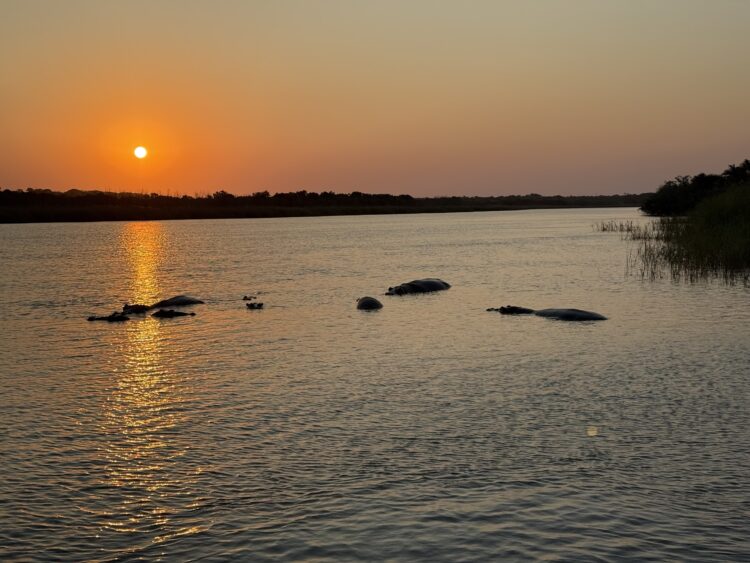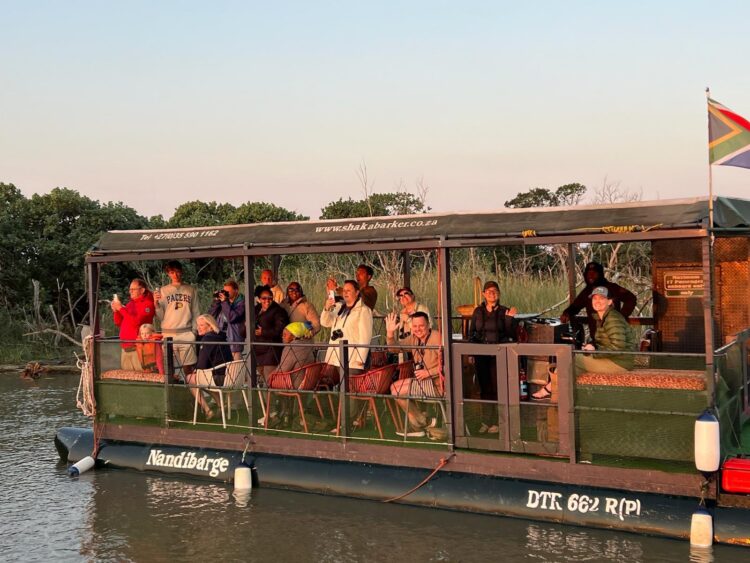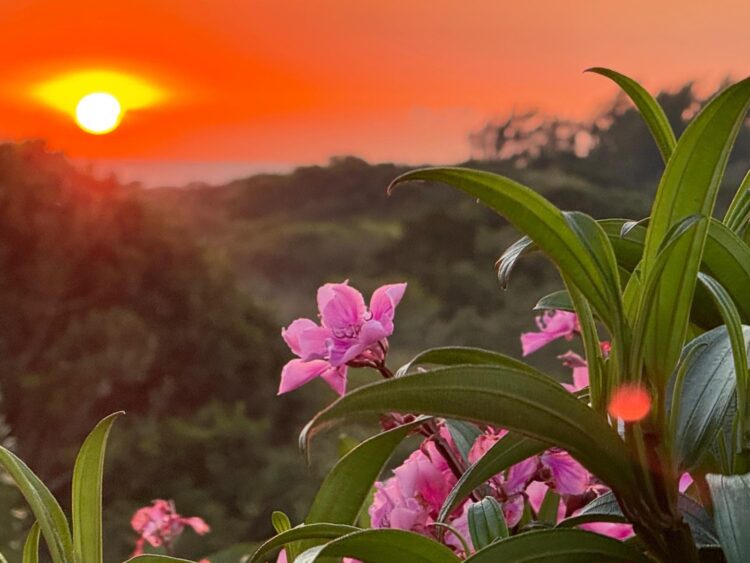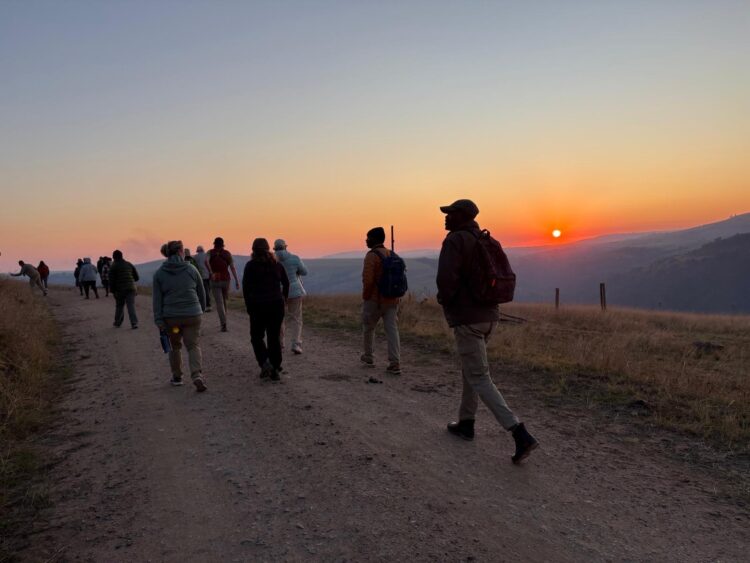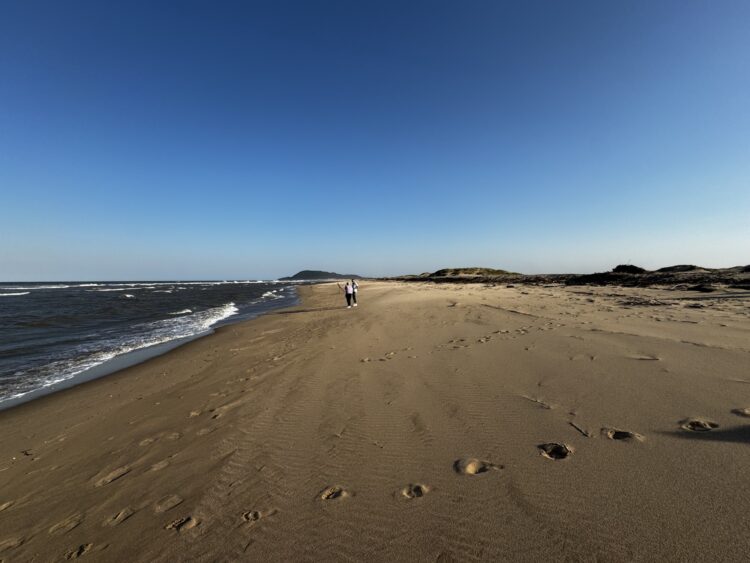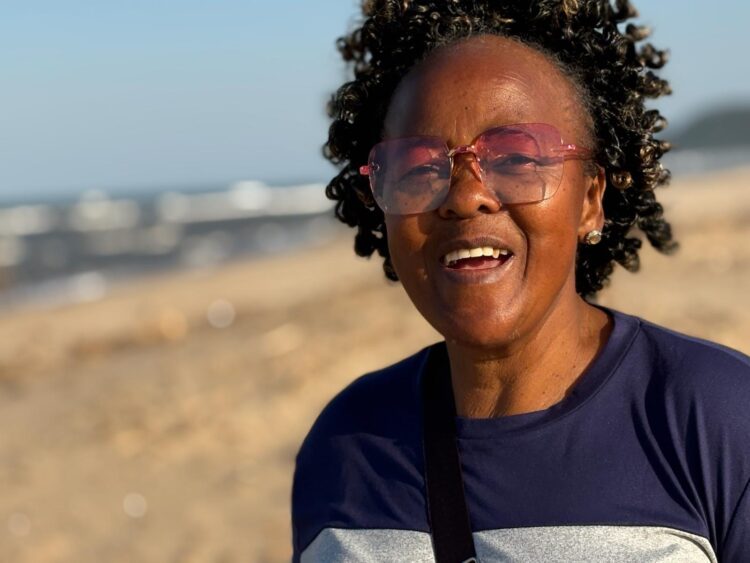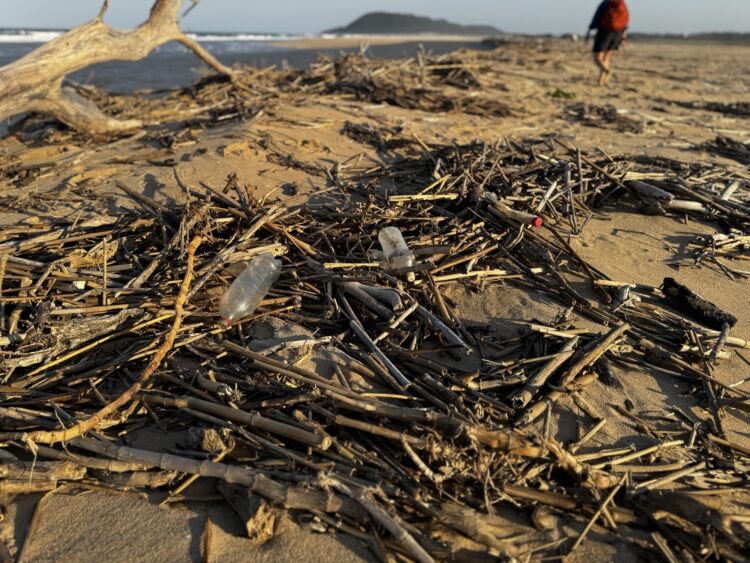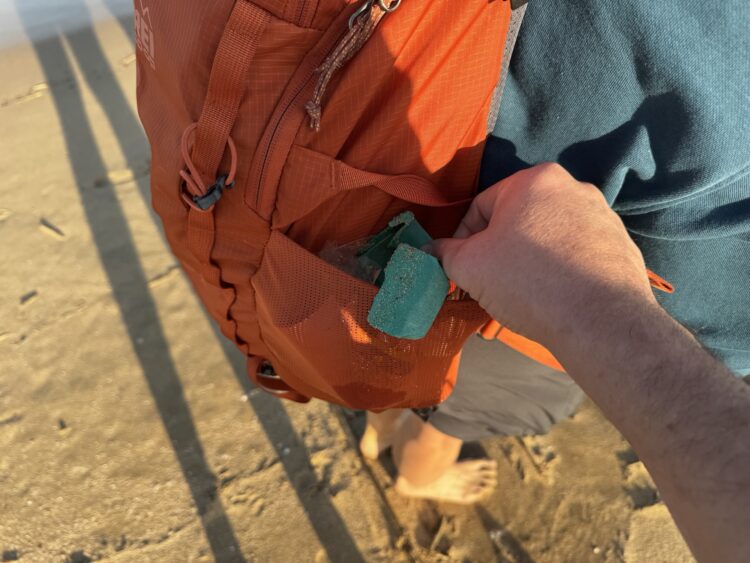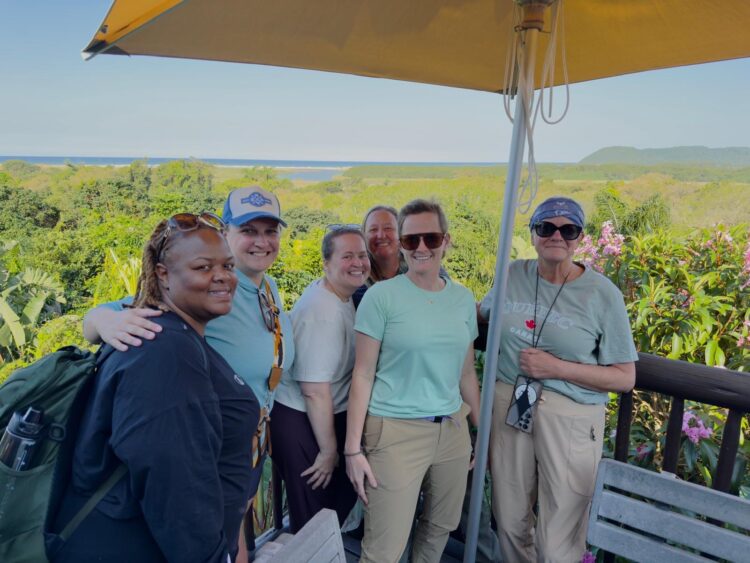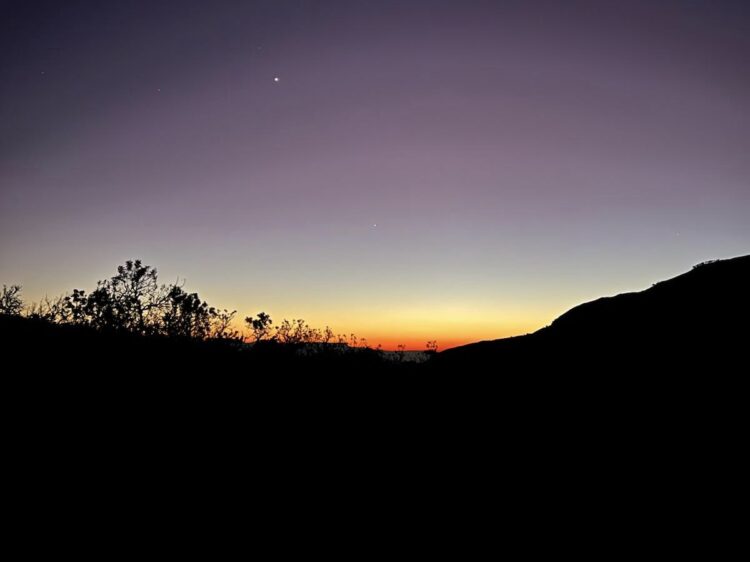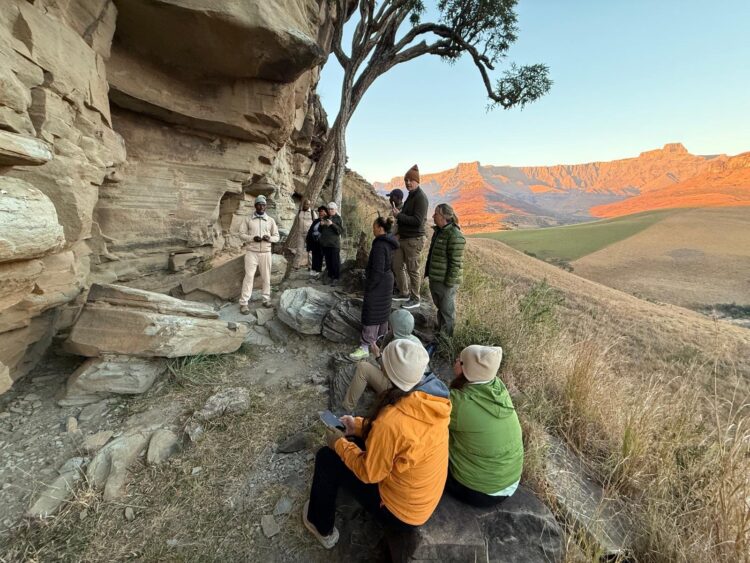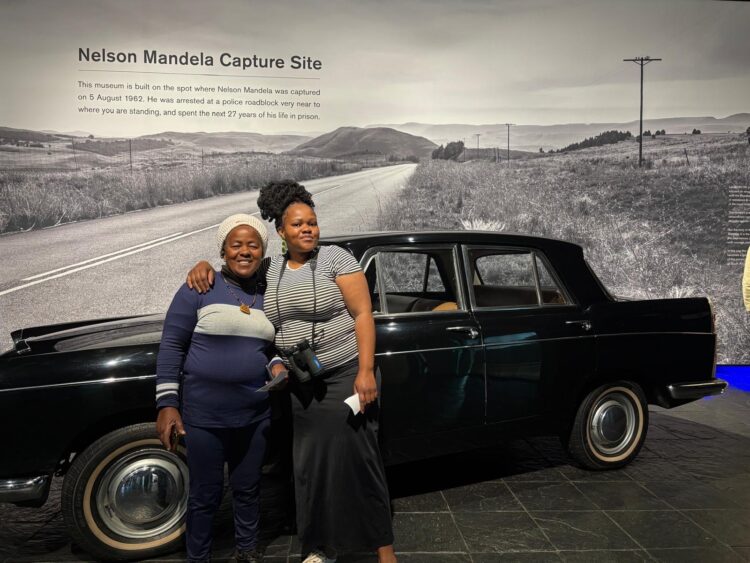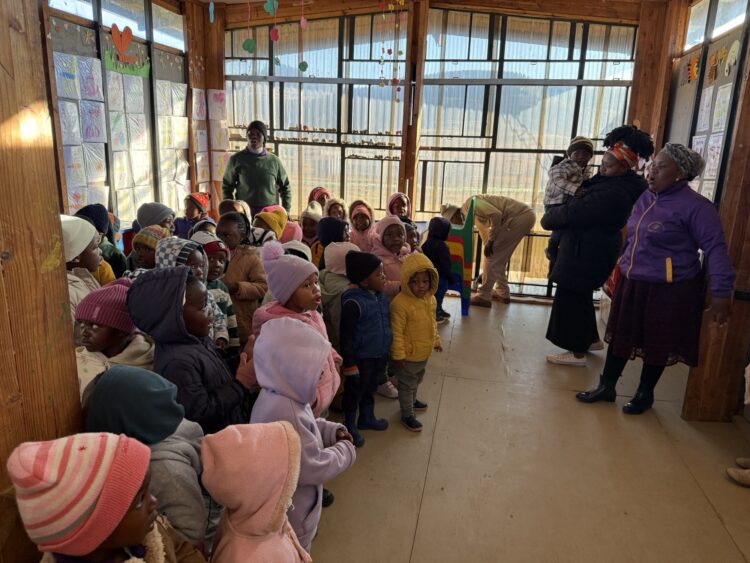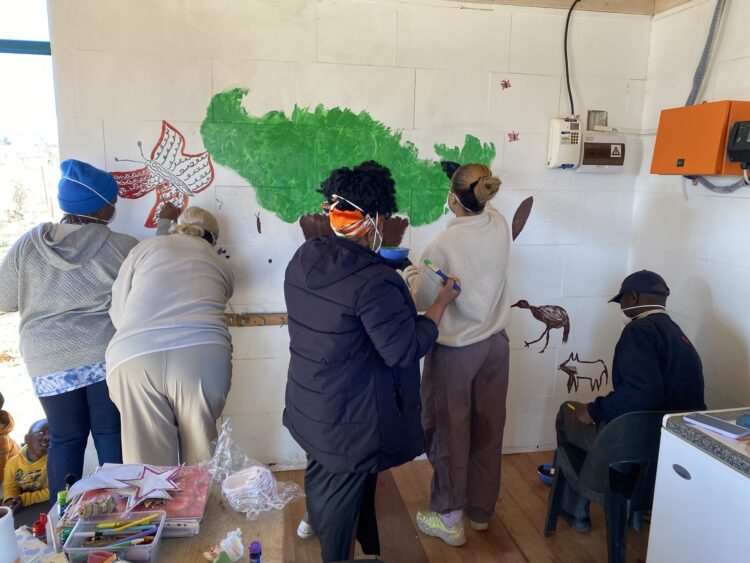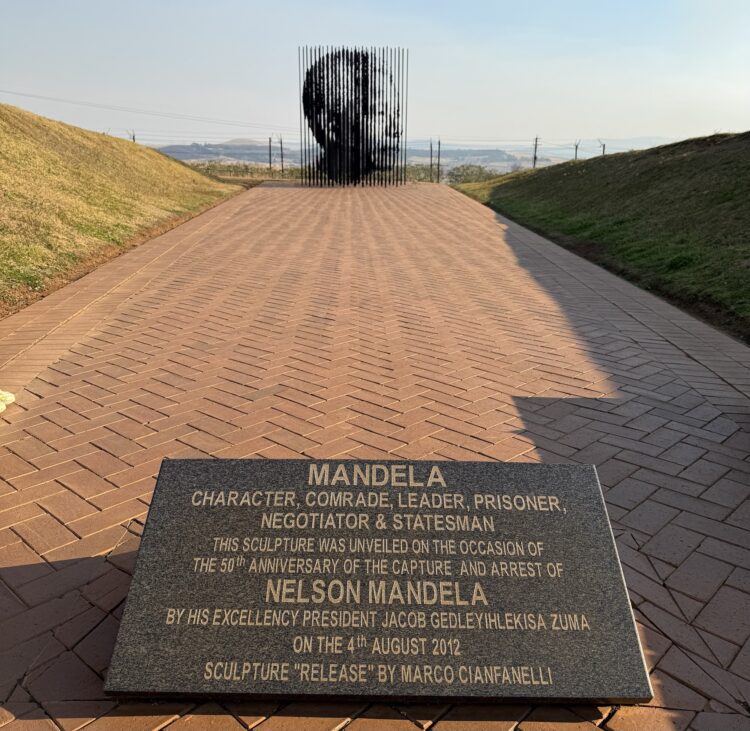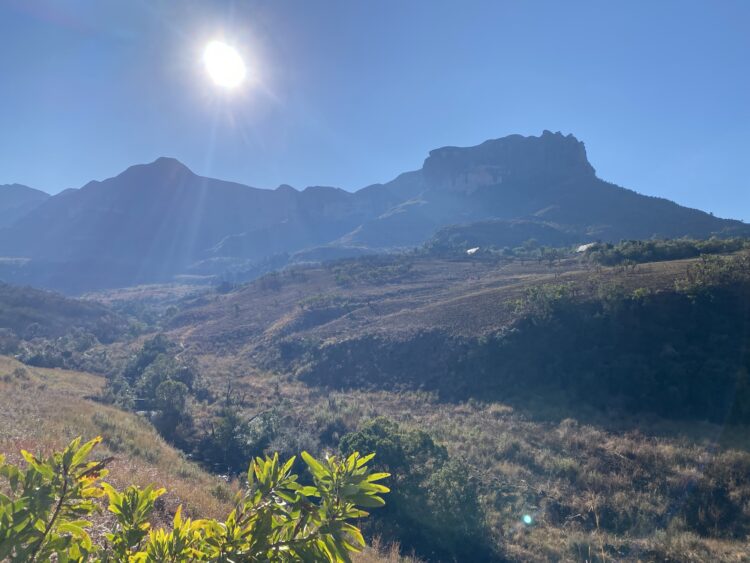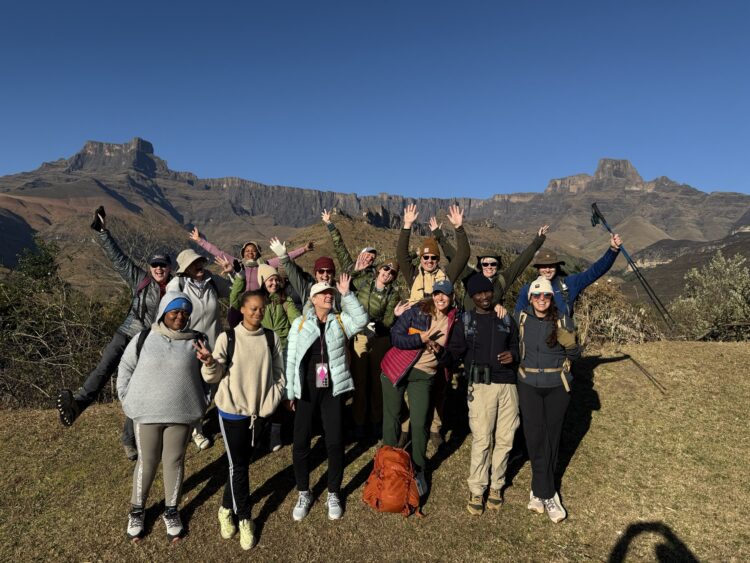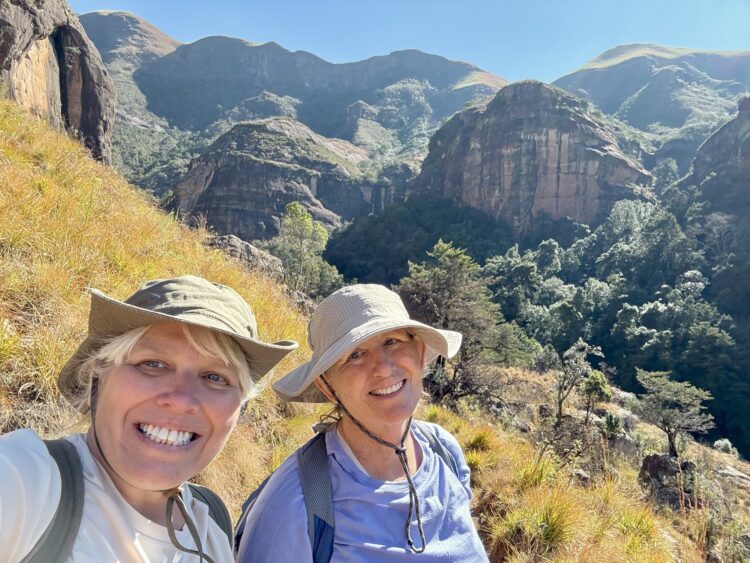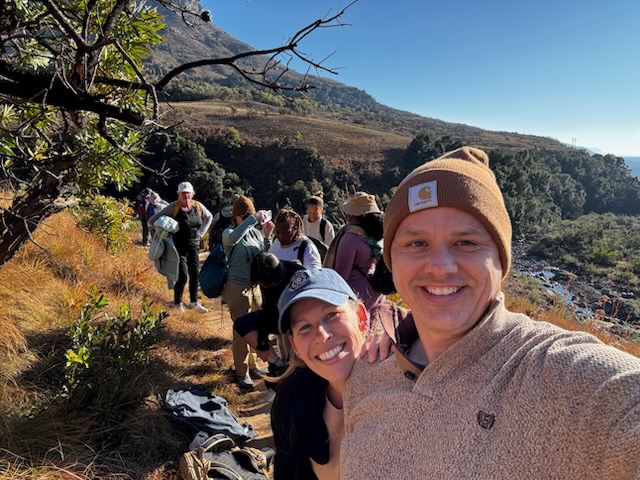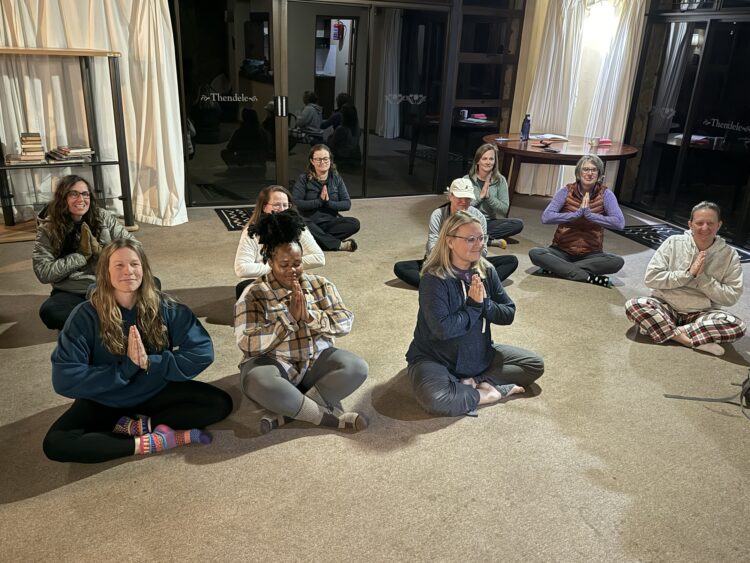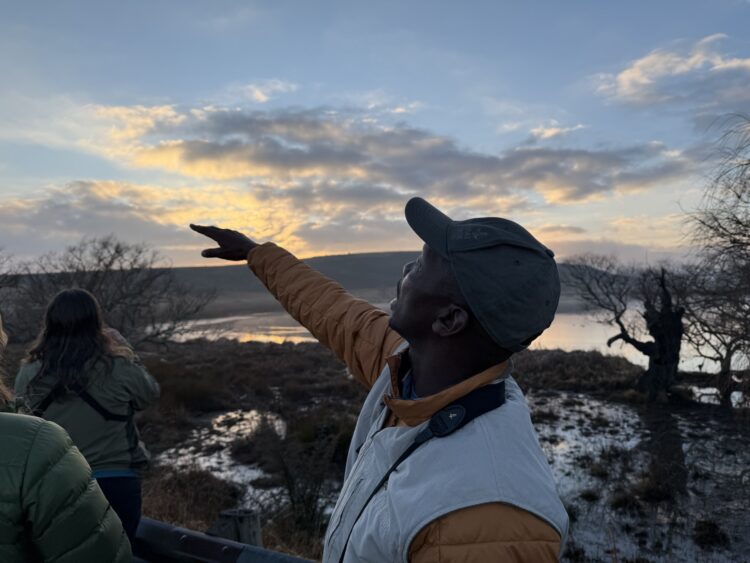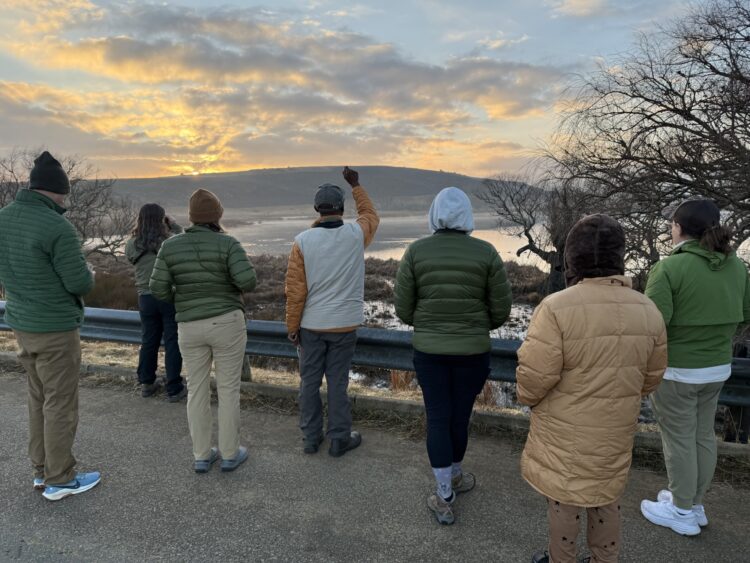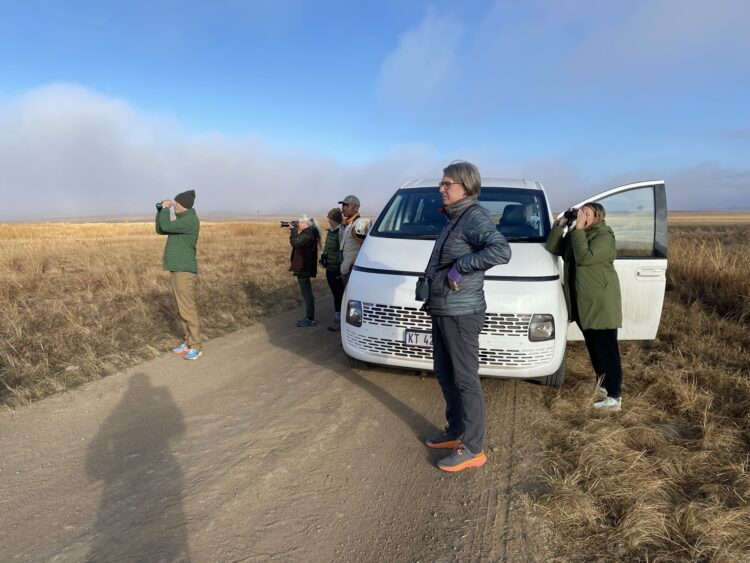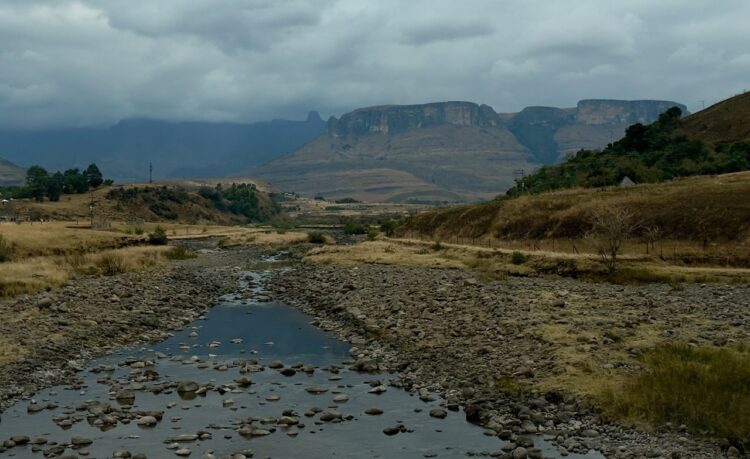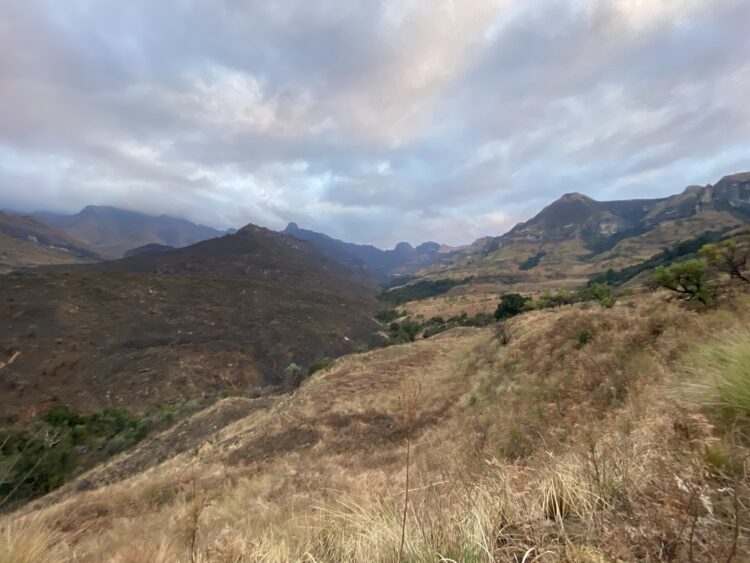“A Hold On Our Heart”
August 6, 2025 - Comments Off on A Hold On Our Heart
Some places hold onto a piece of you just a bit longer than planned. Four cancelled flights and three and a half days later than our original departure, today was our final, final, final, final last day in South Africa. It was just as we manifested it to be: we went whale watching!
Marine Big 4 out of 5
With the help of Marine Dynamics, a shark and whale watching tour company based in the Western Cape, we pushed out into the Atlantic’s 9-12 foot waves, just west of the Indian Ocean. Our driver Waldo said, “We weren’t climbing mountains, but it was pretty high!” Despite the rough seas, our vessel Slash Fin provided exceptional viewing! We found 4 of the Marine Big 5: whales, sharks, seals, and penguins. It was too rough to seek dolphins.
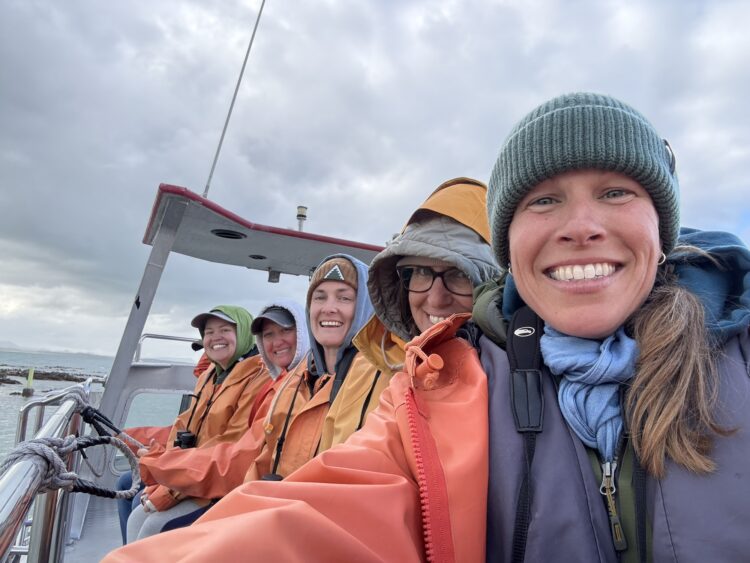
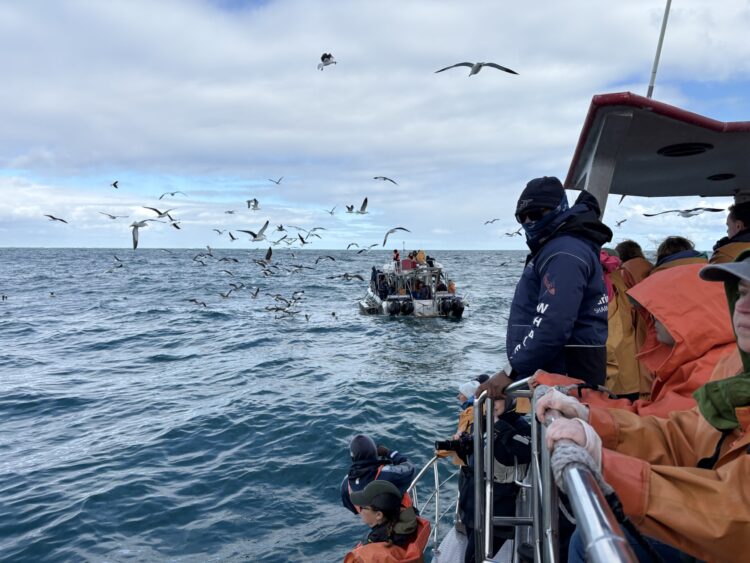
We motored past Danger Point and met up with an albatross, a humpback whale, a Southern right whale, and a mola mola. Then we swung back to Geyser Rock and were stunned by the scent and sight of thousands of Cape fur seals and the many pairs of African penguins that occupy Dyer Island. As we headed back we witnessed a bronze whaler shark visiting tourists submerged in a cage.
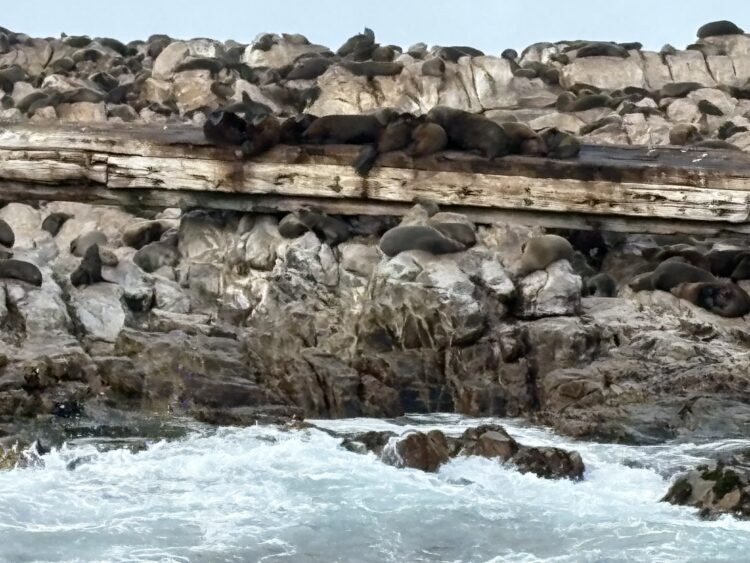
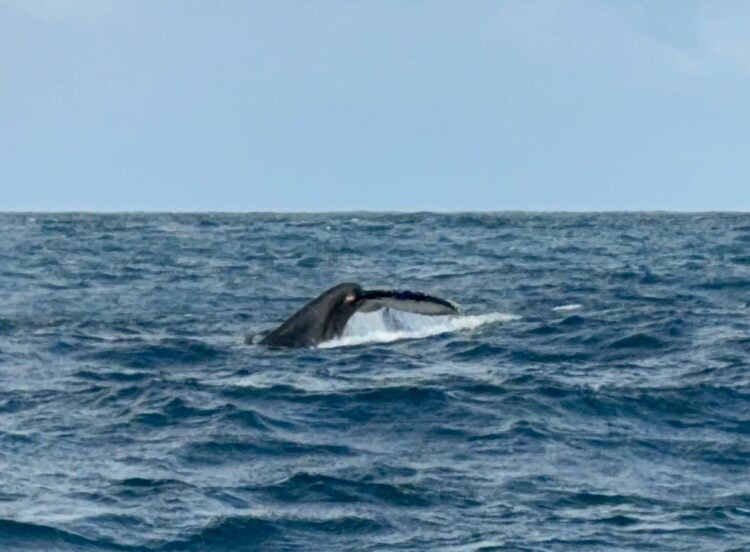
While a few of us succumbed to the sea’s fury, most of us giggled for 2.5 hours with our feathered friends a mini flock of brown skua.
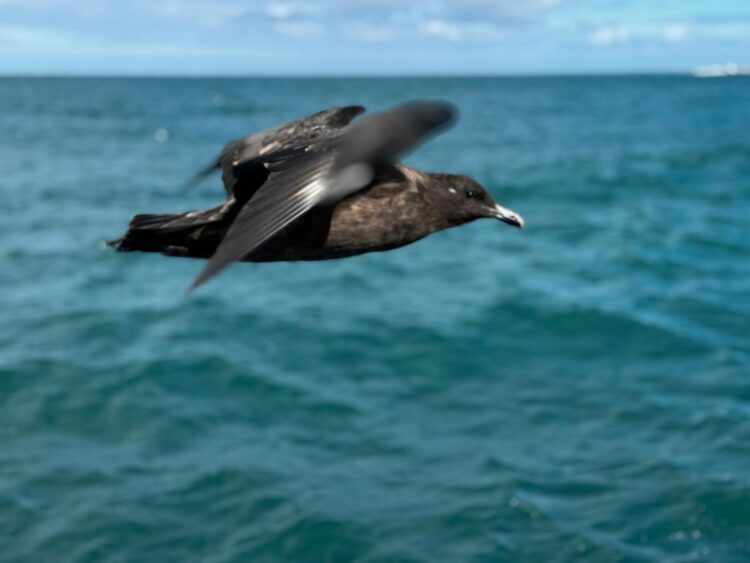
Beyond the wildlife we were in awe of the captain as we surfed home, threaded the harbor entrance, and (without hesitation) landed our boat on a trailer that was promptly plucked out of the bay by a John Deere tractor. Then we disembarked for a bowl of butternut squash soup while our mates recovered.
Walker Bay
We then spent our afternoon in Hermanus on the cliff path in the Fernkloof Nature Preserve. Just when we thought we couldn’t take another picture, South Africa stunned us with her beauty. A plethora of rock hyrax scooting across folded basalt, wild cow lillies (aka pigs’ ears), and the massive wave energy rolling through the kelp forest were only a few of the sights that stunned us.
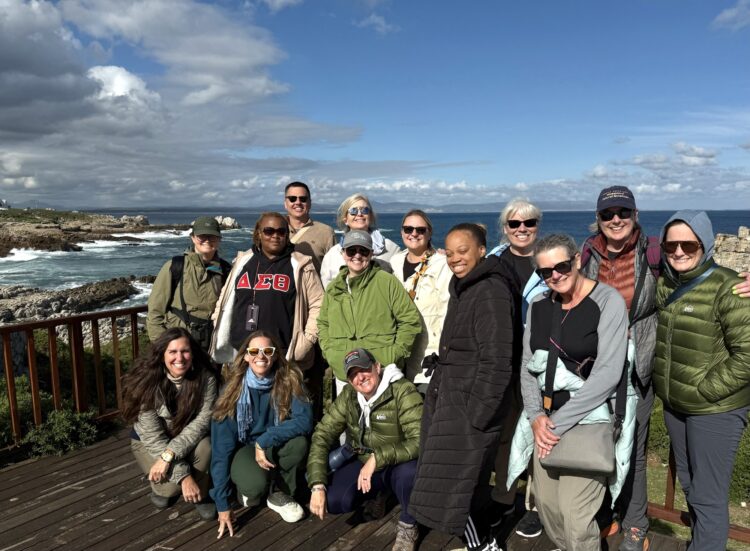
Cape Town International Airport
It is 10:30pm, we have a gate, boarding passes, and should wake up in Amsterdam. This just might be goodbye to Cape Town, South Africa.
We did leave behind Khadijah’s YETI, Flavia’s Ocracoke School dolphin, the contents of Emily’s stomach, part of Stephanie’s birthday cake, and a BIG piece of our hearts. We take with us memories and a new extended family.
